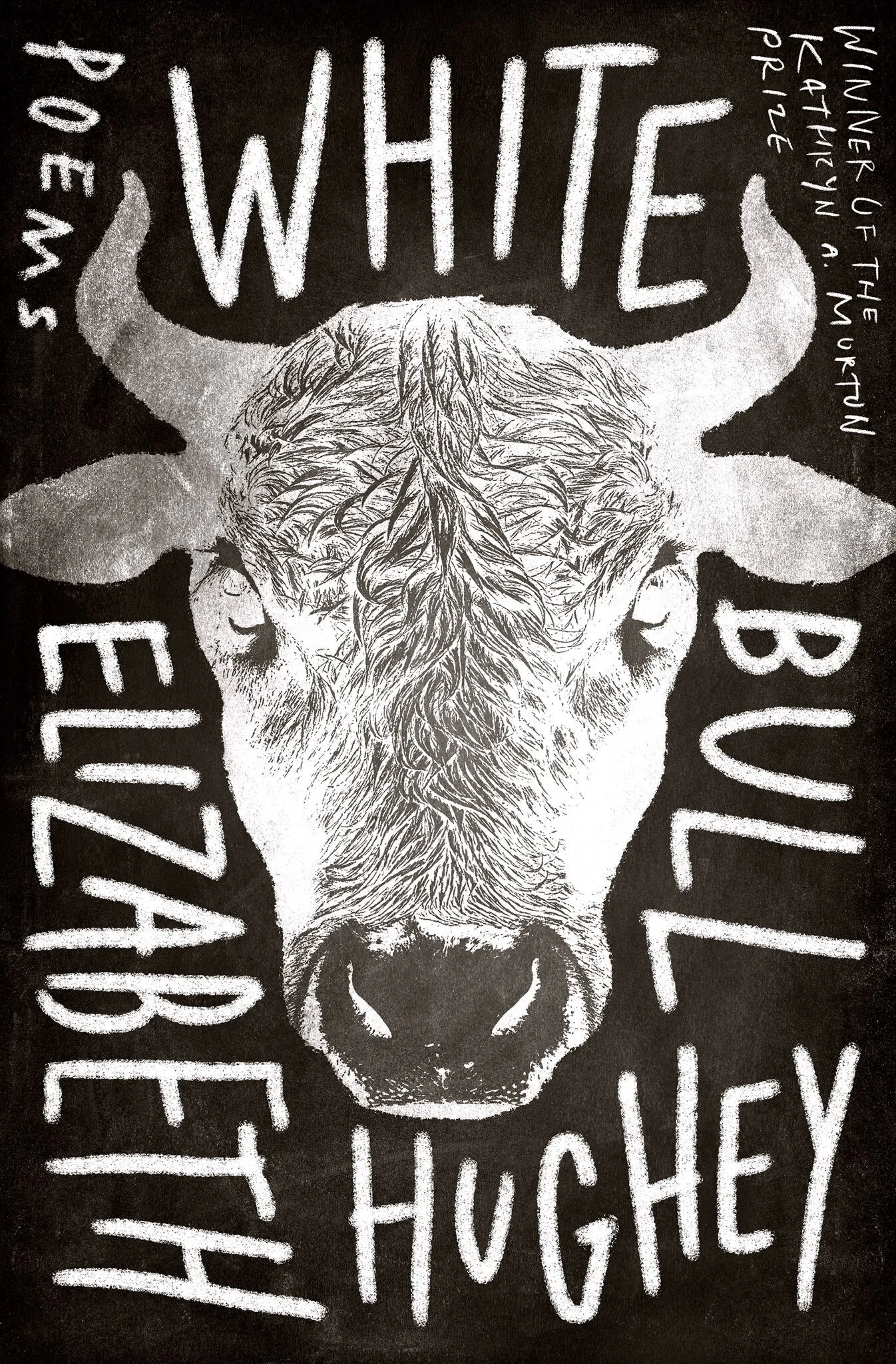
White Bull, Elizabeth Hughey
Semi-finalist for 2023 PSV North American Book Award
Library Journal, "The Books of 2022"
Literary Hub, "The 103 Best Book Covers of 2022"
Birmingham Times, "A Few Poets in the State You Need to Know"
Winner of the 2020 Kathryn A. Morton Prize in Poetry judged by Alberto Ríos.
Composed entirely of words taken from the letters and public statements of the notorious segregationist Bull Connor, the poems in White Bull use language that was wielded in violence and oppression to reckon with the present moment. The city of Birmingham is a character too, with its suffocating heat and humidity, quarry pools, and mountain in the distance. Here, the truth comes out, like a child whispering in the midst of a political rally, “Summer separates us with the same trees.” And, “I thought if I repeated a word enough it would change its meaning.” Elizabeth Hughey holds up and examines the things handed down to us—from patterned wing backs and chipped tea sets to family names and gender roles—and asks if we should keep any of it or burn it all down and start again.


Additional Info
Elizabeth Hughey is the author of Sunday Houses the Sunday House (University of Iowa Press), and Guest Host (The National Poetry Review Press). She has received fellowships from the National Endowment for the Arts and the Sustainable Arts Foundation. She is the co-founder and Programming Director of the Desert Island Supply Co. (DISCO), a literary arts center in Birmingham, Ala. She was 2020 winner of the Kathryn A. Morton Prize in Poetry, judged by Alberto Rios.
PRAISE FOR WHITE BULL:
"[Hughey's] refusal to let the dead lie buried evokes the hauntology of Southern life, but it also seeks a reparative future that acknowledges, and disempowers, the old.....White Bull ravage[s] time in spectacular, disturbing ways."
—"INVOCATIONS OF TIME IN RECENT POETRY: AMISH TRIVEDI AND ELIZABETH HUGHEY" by Alina Stefanescu, Gasher
"White Bull is a feat in finding the language to demystify our time."
—The Clarion-Ledger, online and print
"Turning the words of hatred into a language of poetry."
—The Reckon Review, online
"This collection lands like a hammer on an anvil: forceful but with a delicate musical ringing."
—H. M. Cotton for Alabama Writers' Forum
“Elizabeth Hughey’s poems shred out and repurpose the words of Bull Connor, appropriating them from him as he cruelly appropriated them from us. In turn, we see what those words could have been, what they might have meant. And out of those complexities they come swinging. Thankfully, humor too is present—so clearly in the spirit of human nature. What Hughey has achieved is to take a hurt and make it part of a moving journey. These are my places and your places—past, present, and future. As timely an offering as can be.”
—Alberto Ríos, contest judge
“Whether their subject is a savagely racist city commissioner or a Birmingham girl-teen-woman seeking her own place in the sexist South, the originality of these poems and the almost magical power of their language to go beyond itself amaze me. White Bull is a work of dazzling virtuosity and deep truth. Liz Hughey opens words like jewelry boxes and finds the rubies and diamonds within. I'm an Old Hand; I've seen a lot of words — hand-picked and rightly arranged, but nothing like these words smuggled out of racist, sexist deepest dark to glitter like the tip of a virgin pickax.”
—Sena Jeter Naslund, author of Ahab’s Wife, Four Spirits, and The Fountain of St. James Court
“Elizabeth Hughey has done in White Bull what most respectable Southern belles dare not. She stares down the white supremacist worldview that has made the privileges her generation enjoys possible by entering the mind of one of its most monstrous offenders: Theophilus Eugene ‘Bull’ Connor. White Bull's language play tethers his violent legacy to that which continues to fill our inboxes and news feeds with bloodied Black and brown bodies . . . all while her speakers ‘see our reflections/in the sterling set/that we have cleaned/of its meaning.’ Traversing Birmingham's landmarks and haunted haunts in poem after poem, Hughey writes with incisive, heartrending deft, and White Bull throws down a gauntlet to white readers everywhere: What are you going to do with this mess that Bull—and your ancestors—have made?”
—L. Lamar Wilson, author of Sacreligion
